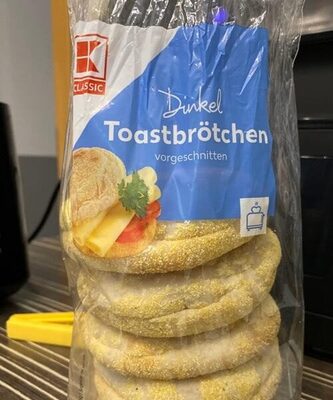
Barcode: 4068445000036
Dinkel Toastbrötchen
HALAL
📝 Reason: All ingredients listed are either plant-based or derived from sources generally considered Halal. No Haram ingredients or E-codes were identified in the product. The product does not contain any meat or meat by-products, and there are no indications of alcohol or pork derivatives. Based on the provided information and Islamic dietary laws, the product is considered Halal.
🏷️ Category: Plant Based Foods And Beverages, Plant Based Foods, Cereals And Potatoes, Breads, Toasts, Toasted Bread Rolls
📄 Certificates: Vegetarian, Vegan, European Vegetarian Union, European Vegetarian Union Vegan, Vegetarisch
Ingredients:
Details
Understanding the Halal Status of Dinkel Toastbrötchen
Dinkel Toastbrötchen is a popular type of toasted bread roll made from spelt flour, widely appreciated for its unique flavor and texture. Many consumers, particularly those mindful of their dietary restrictions, often wonder about the Halal status of products. This article will delve into the specifics of Dinkel Toastbrötchen, examining its ingredients and certifications to confirm its compliance with Halal dietary laws.
Halal Certification and Ingredients Analysis
The Dinkel Toastbrötchen is categorized under Plant-Based Foods and Beverages, specifically within the subcategories of Cereals and Breads. The product boasts a Halal status, referring to its compliance with Islamic dietary laws, which prohibit the consumption of certain ingredients such as pork and alcohol. The verification of its Halal status stems from the careful analysis of its ingredients, which are all plant-based or derived from Halal sources.
Ingredient Breakdown
Let’s take a closer look at the components that make up Dinkel Toastbrötchen:
- Spelt Flour (a type of wheat): This is a plant-based ingredient and is generally recognized as Halal. Derived from the processing of spelt grains, it forms the bulk of the bread roll.
- Water: A natural substance, completely Halal and vital for the dough consistency.
- Corn Semolina: Another plant-based ingredient considered Halal, adding to the texture of the bread.
- Yeast: Typically derived from microorganisms, yeast is generally Halal unless indicated otherwise. In this case, its source is not derived from Haram materials.
- Inverted Sugar Syrup: This ingredient is derived from sugar and is commonly accepted as Halal.
- Wheat Flour: A plant-based ingredient ensuring the bread holds its structure, it is Halal compliant.
- Table Salt: Consisting of minerals, it is a Halal staple in food production.
- Wheat Protein: A crucial element providing structure to the bread; being plant-based confirms its Halal nature.
- Acid Regulator: Sodium Acetates (E262): This component is recognized as Halal and serves as a preservative.
- Stabilizer: Guar Gum (E412): A plant-based gum used to ensure the texture and consistency of the bread; Halal.
- Dextrose: Generally derived from starch and deemed Halal.
- Emulsifier: Mono & Diacetyl Tartaric Acid Esters of Mono- and Diglycerides (E472e): Commonly Halal unless specified otherwise.
- Sodium Stearoyl-2-Lactylate (E481): This emulsifier is typically Halal as well unless derived from Haram sources.
- Citric Acid (E330): A widely used acidifying agent that is Halal compliant.
- Rapeseed Oil: A plant-derived oil, it is Halal and adds flavor to the bread.
Conclusion: Dinkel Toastbrötchen is a Halal Option
Based on the outlined ingredients and their respective Halal statuses, Dinkel Toastbrötchen is an excellent choice for individuals adhering to Halal dietary guidelines. There are no Haram ingredients or indications of alcohol or pork derivatives, making this bread roll suitable for a Halal diet. Furthermore, it is certified vegetarian and vegan, aligning with various dietary preferences.
In summary, if you’re seeking a delicious and compliant bread option, Dinkel Toastbrötchen stands out as a Halal-friendly choice, perfect for your dietary needs.
